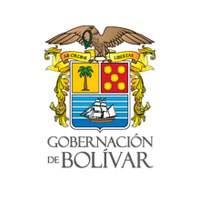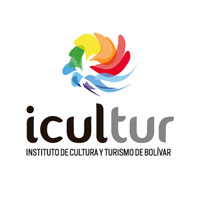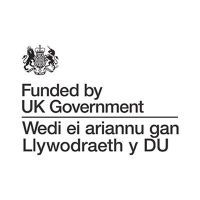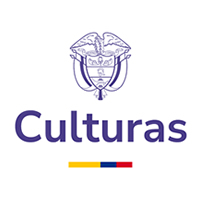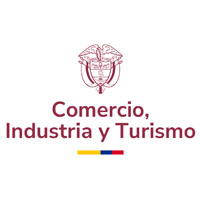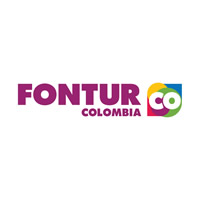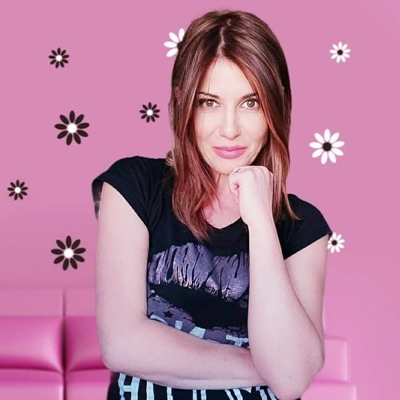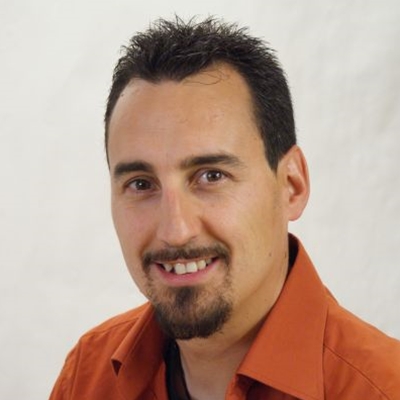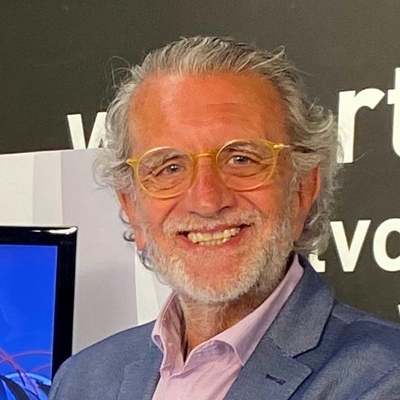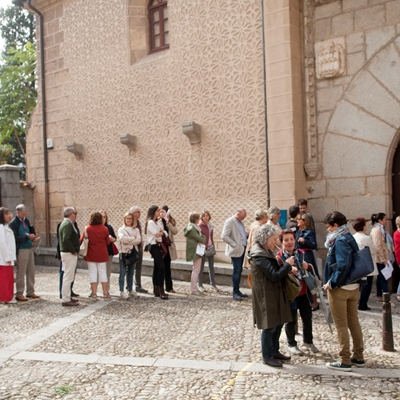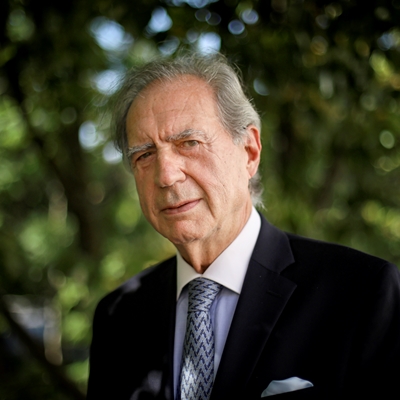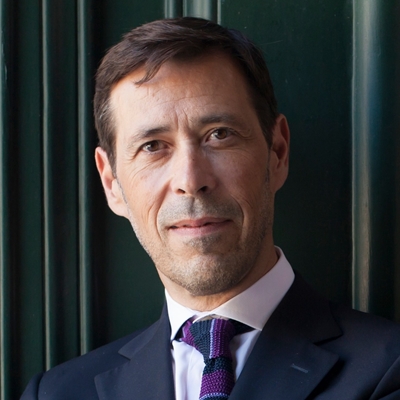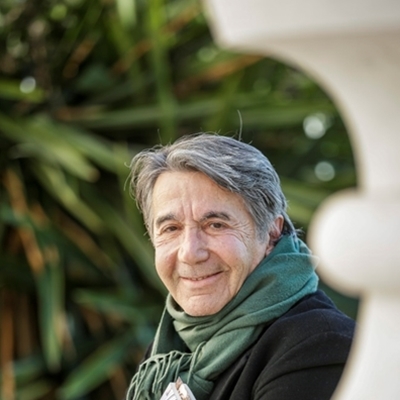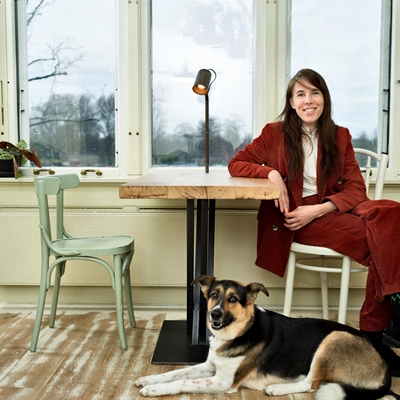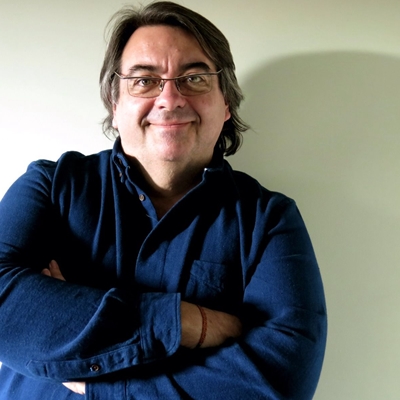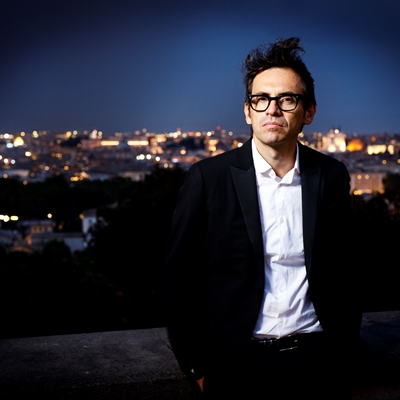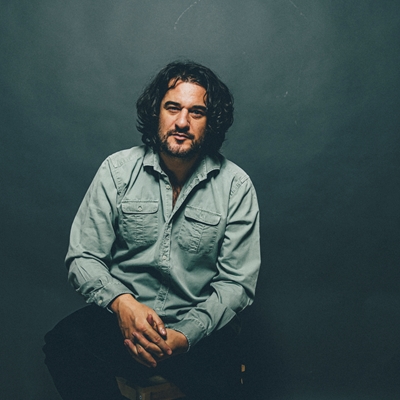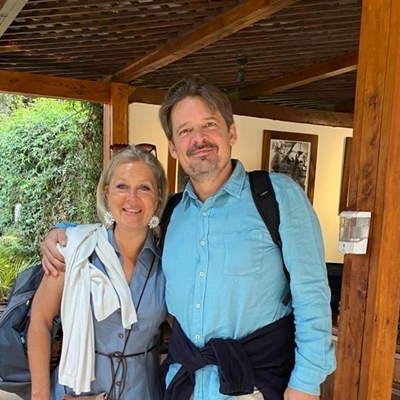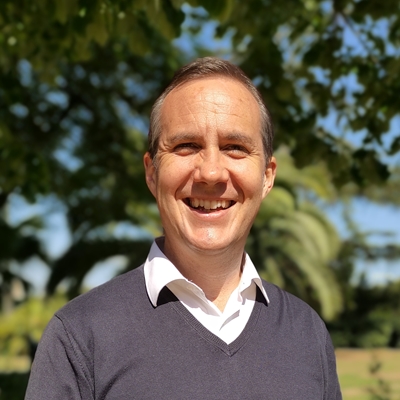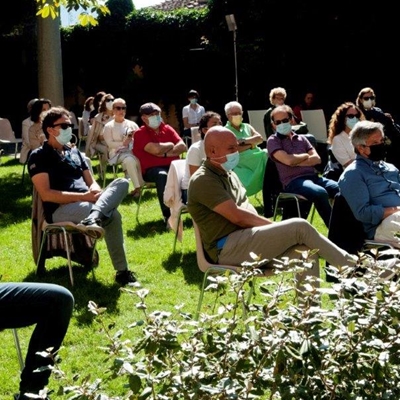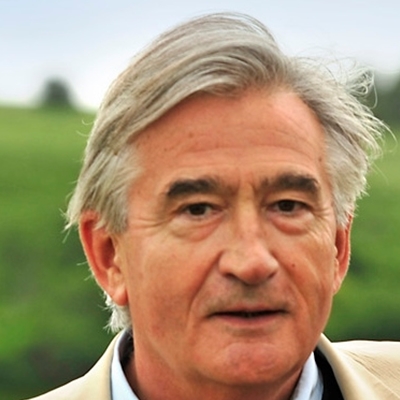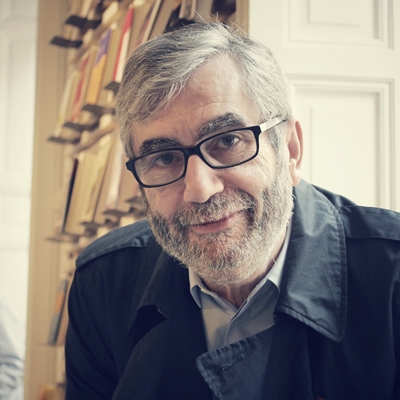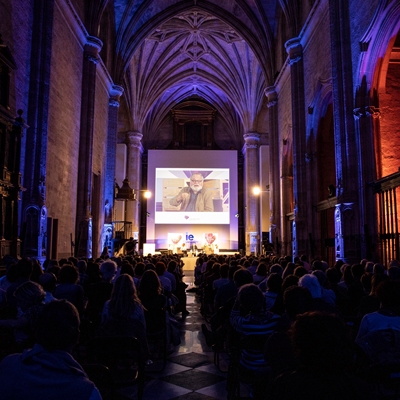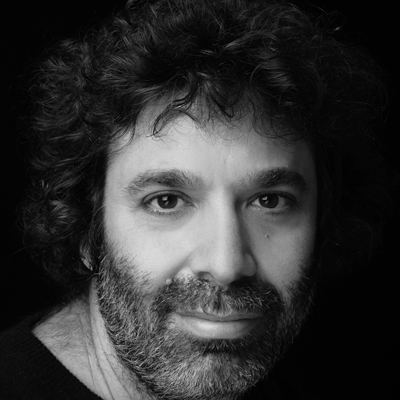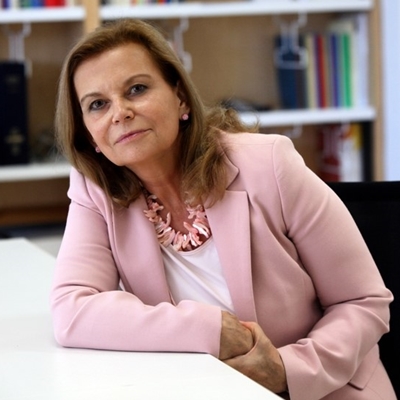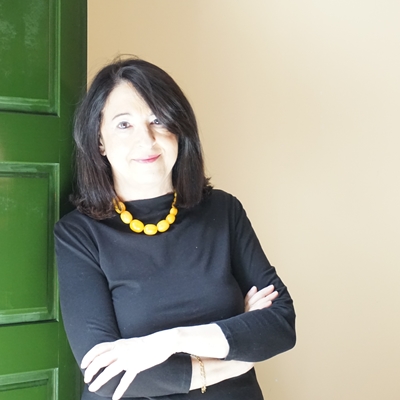Hay Festival Colombia Digital
Hay Festival Colombia took place from 21 to 30 of January 2022, with events in the cities of Cartagena de Indias, Medellín and Jericó. You are currently browsing the digital programme of the festival.
If you want to browse the in-person events of Hay Festival Cartagena de Indias, click here.
If you want to browse the in-person events of Hay Festival Medellín, click here.
If you want to browse the in-person events of Hay Festival Jericó, click here.
Event 51
Emecé Condado and Cristian Fernández in conversation with Aurelio Martín
Erotic literature as a genre: The return
La Alhóndiga. Escenario Gales / Llwyfan Cymru
The rights of women can also be defended in the realm of eroticism. This is a central premise for the writing of Emecé Condado, who aims to demystify sex and break down stereotypes through literature. After working on blogs and digital magazines, and on the collective work Segovia erótica (Ediciones Derviche), she has published her first book of short stories, Nunca más (libros.com). Cristian Fernández, a multi-genre writer, considers eroticism an essential ingredient for romanticism, but with a critical eye for the perfect dosage. He has just finished publishing Riperdá, El Holandés Errante (Ediciones Derviche), a historical novel set in the first half of the of the 18th century. They will talk to the journalist Aurelio Martín.
Once the event has finished, authors will sign books in the booth at calle Real.
Event in Spanish
Organized together with Editorial Entrelibros and Segovia City Council
Event 6
Marta Dyczok, Dmitry Khorkin, Vadym Miskyi, Matthieu Rawolle, Sofia Taavitsainen and Yuriy Tabachenko
The role of radio in difficult times
Digital venue
Why should you carry a radio with you in difficult times? How does radio help its listeners cope with current challenges? Why is radio the best helper in times of home isolation during a pandemic, as well as during natural disasters and full-scale war? How have European broadcasters managed to provide support for their listeners during socio-political turmoil, hostilities, natural disasters, and pandemics, and have they managed to protect themselves from all the disinformation, manipulation, and myths that inevitably flourish during such periods?
Marking the 100th anniversary of Ukrainian Radio, two eminent broadcasters discuss the role of radio in a digital world: Marta Dyczok, Dmitry Khorkin , Vadym Miskyi, Matthieu Rawolle, Sofia Taavitsainen, and Yuriy Tabachenko.
Marta Dyczok, Matthieu Rawolle and Sofia Taavitsainen will join digitally.
En colaboración con la Radio Ucraniana de Suspilne Media

Event 7
David J. Remnick is an American journalist, writer, and editor, Pulitzer Prize winner for his book Lenin's Tomb: The Last Days of the Soviet Empire, and author of Resurrection and King of the World: Muhammad Ali and the Rise of an American Hero. He talks to journalist Kristina Berdinskykh about geopolitics and US elections.
David Remnick will join the event digitally
Supported by the US Embassy in Ukraine

Event 52
Mark Muller Stuart QC is a leading barrister specialising in international law, terrorism and human rights litigation. He has been a member of the Queen's Counsel since 2006 and advises numerous international law organisations.
He has also written a number of books and reports on human rights and conflict-related areas, having conducted international missions in Afghanistan, Sudan, Palestine, Iraq, Oman, Bahrain, Syria, Libya, Turkey, Armenia, Georgia, Azerbaijan, India, Cuba, Colombia, Zimbabwe, South Africa and Afghanistan. He is co-founder of the Delfina Arts Foundation, as well as founder and executive director of Beyond Borders, an international platform based in Scotland that works to break down borders between peoples and help facilitate wider international cultural exchange, dialogue and reconciliation.
Álvaro Gil Robles is a prestigiuos Spanish politician and lawyer, former Ombudsman and the first Commissioner for Human Rights of the Council of Europe. He has held several positions in important official bodies, among them, candidate of the European Court of Human Rights, integrating the Selection Committe, the body in charge of the Peace Agreement between the Government and the FAR, and selecting the magistrates of the special jurisdiction for the Peace Process of Colombia with President Juan Manuel Santos. He has written several books and articles in his field of expertise, including: Los Nuevos Límites de la Tutela Judicial (The New Limits of Judicial Protection). He is the President of the Valsain Foundation for the promotion and defence of democratic values, founded with a group of friends with significant work in the dissemination of these values.
Event in English with simultaneous translation into Spanish
Organized together with Beyond Borders Festival, Edinburgh

Event 54
Antonio Filipe Pimentel and Antonio Monteiro in conversation with Lorenzo de’ Medici
Patronage today
Torreón de Lozoya
Patronage of different kinds is one of the major forms of promoting and protecting creative works. Three outstanding cultural figures who understand its importance, both in the public and private spheres, come to the Hay Festival Segovia. They are Antonio Filipe Pimentel, Director of the Calouste Gulbenkian Museum, also in the Portuguese capital, who will talk about private patronage; and the ambassador Antonio Monteiro, Chair of the Millennium Bank Foundation, who will talk about support for public institutions and private creators through his foundation.
Prince Lorenzo de’ Medici, a direct descendent from a branch of the historical family of patrons, will moderate this event.
Event in Spanish
With the support of The Medici Foundation and The Caja Segovia Foundation
Event 8
Lydia Cacho, Oleksandra Matviichuk, Lola Shoneyin, Terrell Jermaine Starr and Franziska Davies talk to Oleksii Tarasov
Democracy 2024: Does my Vote Matter?
Digital venue
Why do Ukrainians follow the elections around the world, why do we analyze the programs of the candidates? Because in particular, those points related to global security. Whether our vote is a responsibility for the term of the mandate, or whether each of us with our vote can influence world democracy, even the end of wars. Can we do anything if the choice is made, but the politicians do not choose the democratic course. A conversation beatween Mexican writer and journalist Lydia Cacho, American journalist Terrell Jermaine Starr, Nigerian poet, culture manager and activist Lola Shoneyin, human rights defender, Nobel Prise for Piece winner Oleksandra Matviichuk, historian Franziska Davies and editor-in-chiefof Radio NV Oleksii Tarasov.
Oleksandra Matviichuk and Lola Shoneyin will join the event digitally.
Supported by the US Embassy in Ukraine, House of Europe and the Goethe-Institute in Ukraine.

Event 53
"Humans have spent decades trying to teach other animals our language... but have made little effort to learn theirs.” So says Eva Meijer, writer, philosopher and singer-songwriter, who bases much of her work on questions of language, both political and animal, since writing her award-winning doctoral thesis: Cuando los animales hablan (When Animals Speak). Her sixth novel, Sea: now, has been translated into eighteen languages. Her biography includes a long history of struggling and living with depression. This is the subject of one of her latest works translated in Spain: The limits of my language. Meditations on depression. She publishes essays and columns in the media in her native Netherlands.
Eva Meijer will talk to Jesús Ruiz Mantilla, journalist and writer, author, among other works, of Papel
There will be a book-signing at the bookstand in front of IE University
Event in English with simultaneous translation into Spanish
With the support of the Dutch Embassy in Spain and Penguin Random House Publishing Group
Event 9
Iulia Bentia, Yuriy Skira, Ihor Balynskyy and Oleksandr Motyl and Igor Shchupak in conversation with Natalia A. Feduschak
Ukrainian Jewish Encounter Prize Ceremony 2024
Digital venue
Encounter: The Ukrainian-Jewish Literary Prize ™ is awarded annually for the most influential work of fiction and non-fiction that promotes Ukrainian-Jewish understading, helping to strenthen the position of Ukraine as a multi-ethnic society and embodying the motto, 'Our stories are incomplete without each other'.
The award ceremony will be held with the participation of Ukrainian writer Yuriy Skira, whose nonfiction book Solid. The Life-Saving Footwear Factory won the 2024 prize; Ihor Balynskyy, co-founder of the Choven publishing house; Iuliia Bentia, Executive Editor at Krytyka journal and Senior Research Fellow at the Modern Art Research Institute, the National Academy of Arts of Ukraine (Ukraine/Jury Member); Alexander J. Motyl, professor of political science at Rutgers University-Newark, writer, and painter (United States/Jury Member); Igor Shchupak, Board Member, Ukrainian Jewish Encounter. In conversation with Natalia A. Feduschak.
Iuliia Bentia and Alexander J. Motyl will join the event digitally.
Supported by the US Embassy in Ukraine
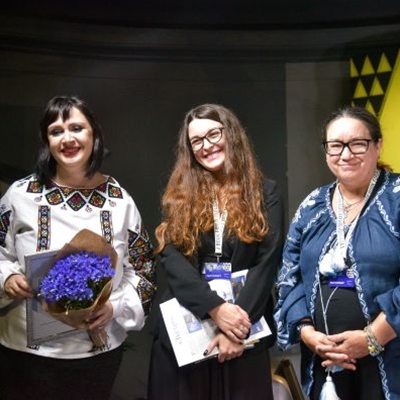
Event 21
Alim Aliev, Inna Pidluska, Olesya Ostrovska-Liuta and Serhiy Zhadan with Radoslava Kabachiy
Civil Society Collective Action: The Power of Resilience and What We Lack
Digital venue
Since gaining independence, Ukraine has been undergoing a challenging path of democratic transformation. Since February 24, 2022, the Ukrainian people have shown an unprecedented strength of resistance, resilience, and determination. What role does civil society play in these processes, and what kind of collective action do we lack at this stage?
Those problematic issues will be discussed by: Alim Aliev, Deputy General Director of the Ukrainian Institute and Board Member of the International Renaissance Foundation; Serhiy Zhadan, writer, musician, translator, volunteer, who joined the ranks of the 13th brigade of the Ukrainian National Guard Khartia; Olesya Ostrovska-Liuta, Director of the National Art and Culture Museum Complex Mystetskyi Arsenal; Inna Pidluska, Deputy Executive Director of the International Renaissance Foundation. Moderator: Radoslava Kabachiy, Social Capital Program Manager at the International Renaissance Foundation.
Serhiy Zhadan and Olesya Ostrovska-Liuta will join the event digitally
Organised by International Renaissance Foundation

Event 55
María José Gálvez, Isabel Izquierdo, Elvira Marco and Marifé Boix
Spain at the Frankfurt Book Fair
La Alhóndiga. Escenario Gales / Llwyfan Cymru
Spain is the Guest of Honour at this year's Frankfurt Book Fair, a unique opportunity to showcase Spanish culture and literature to the world. Under the hashtag Overflowing Creativity, Spain will take 450 books in Spanish translated into German to the event. The sector will be represented by 400 publishers and more than 200 authors, and the cultural programme will offer a wide variety of genres and art forms through exhibitions, dance performances, theatrical performances, musical events and publications especially designed for presentation in Germany. This international event will be presented and discussed by María José Gálvez, director general of Books and the Promotion of Reading at the Ministry of Culture and Sport; Isabel Izquierdo, director of programming at Acción Cultural Española, AC/E; the project curator Elvira Marco; and Marifé Boix, vice-president for Southern Europe and Latin America at the Frankfurt Book Fair.
Event in Spanish
Organized together with AC/E (Acción Cultural Española) and with the collaboration of Segovia City Council

Event 11
Marichka Paplauskaite, Jurko Prokhasko and Wojciech Tochman in conversation with Vira Kuryko
How war unites or divides us
Digital venue
What drives people to engage with each other during wartime? How and why does war paralyze society's will to resist? Is war a sentence or a challenge that demands action? The discussion will focus on the key experiences of the Russian-Ukrainian war, its global context, and the main dangers and challenges of the post-war future.
Marichka Paplauskaite is an Ukrainian reporter, media manager. Co-founder of The Ukrainians Media, editor-in-chief of the online magazine Reporters, author of the reportage books God of Amazing People and Other Sinners and The Train Arrives on Schedule. Wojciech Tochman is a polish reporter, Co-founder of the reporter's bookstore-café and publishing house Wrzenie Świata in Warsaw, author of 10 reportage books, including the post-genocide trilogy Like Eating a Stone, Today We`ll Draw Death, and Roosters Crow, Dogs Cry; Jurko Prokhasko is a literary scholar, psychoanalyst, essayist, publicist and translator. Corresponding member of the Saxon Academy of Arts (Dresden), Co-founder and lecturer at the Lviv Psychoanalytic Institute and Member of PEN Ukraine. They talk with the Ukrainian reporter, Vira Kuryko, author of documentary books The Street of the Involved. Chernihiv Case of Lukyanenko, Mazepa. The Right to the Sword or A Healthy Person's Reform. Writes for Reporters, Local History, and a number of Ukrainian and foreign publications.
Organised by Lviv Media Forum and Choven Publishing House

Event 56
In 2010, Nicola Lagioia was named one of the best Italian writers under the age of forty. Twelve years later, five novels translated into fifteen languages confirm the early acclaim. The City of the Living, based on a real crime that shocked Italy, has just been published in Spain. Lagioia is also a member of the jury of the Venice Film Festival, director of the Turin International Book Fair and a contributor to Radio 3. His novels also include Ferocity.
The Italian writer will talk with another prominent, Spanish author, Manuel Jabois, journalist and storyteller, author of novels such as Malaherba and Miss Marte and non-fiction books such as Nos vemos en esta vida o en la otra and Irse a Madrid.
The event is presented by the director of Istituto Italiano, Marialuisa Pappalardo.
The authors will sign copies of their works at the bookstand in front of IE University
With simultaneous translation from Italian to Spanish and from Spanish to Italian and vice versa
With the support of Istituto Italiano, the Embassy of Italy in Spain and Penguin Random House Publishing Group
Event 57
Clemens Schlettwein and Gemma Knowles in conversation with William Mut
Ecology and animal Welfare
Torreón de Lozoya
Twenty years ago, Clemens Schlettwein, an investor and philanthropist specialising in environmental conservation projects, and Gemma Knowles, a holistic animal therapist and dog nutritionist, author of several books on animal welfare, started their life project together, running a shelter for dogs and cats in El Garraf (Barcelona). Project and life partners, they have launched various enterprises related, for instance, to permaculture with horses or the development of a solar car. They will talk about all this with William Mut, an expert consultant in policies and promotion of productive investment, who has worked with numerous multilateral institutions including the World Bank, the United Nations, COMESA and the EU.
Event in Spanish
With the support of William Mut And Associates and Fundación Caja Segovia
Event 12
Bulgarian writer Georgi Gospodinov's novel Time Shelter, winner of the International Booker Prize 2023, follows an unnamed narrator and Gaustine, a psychiatrist who creates a clinic for people with Alzheimer's disease in Zürich. Each floor of the clinic recreates a decade in intricate detail, aiming to transport patients back in time to revisit their memories. Tasked with collecting past artefacts for the clinic, the narrator travels across countries. Soon, healthy people turn to the clinic to flee their monotonous lives and the idea becomes widespread when more clinics open. Referenda are held across Europe to decide which past decade each country should inhabit in the future. Gospodinov talks to the book's translator and author of The Dictionary of War Ostap Slyvynsky. In converstion with Vadym Karpiak.
Georgi Gospodinov will join the event digitally.
In partnership with House of Europe
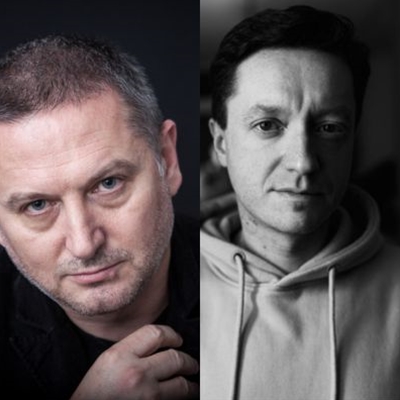
Event 58
Antony Beevor and Antonio Muñoz Molina in conversation
Russia after the Empire of The Tsars
IE University
Russia is the latest work by the British historian and novelist, Antony Beevor. This World War II specialist returns to non-fiction, and to an area he knows well: Russia after the tsars. The struggle that took place between 1917 and 1921 between an alliance of moderate socialists and reactionary monarchists, and Trotsky’s Red Army, as well as Lenin’s subsequent dictatorship, are the themes of this work, which draws on the latest scholarship in the field. The book depicts this period and its conflicts as a world war by proxy, through the eyes of different figures, including a worker in the streets of Petrograd, a cavalry officer, and a woman doctor in a makeshift hospital. This multi-award winning author, translated into over thirty languages (published in Spanish by Crítica), will talk to one of our most prestigious writers, the academic Antonio Muñoz Molina, the author of titles such as El jinete polaco and Volver a dónde.
The event will be presented by Carmen Esteban, CEO of Crítica publishing house.
Once the event has finished, the authors will sign books in the booth outside IE University.
With simultaneous translation from English into Spanish and vice versa
Organized together with Fundación José Manuel Lara and the support of British Council Madrid
Event 13
Vladimir Arsenijević, Oliver Bullough, Viv Groskop, Sofi Oksanen and Iryna Tsilyk talk to Olha Mukha
The end of the Warsaw Pact bloc: A time of hope and change
Digital venue
A reflection on how the world was affected in the 1990s by the collapse of the Soviet Union, the declaration of independence of Ukraine and countries of the former Warsaw Pact. The decade was a time of hope and change. Vladimir Arsenijević is a Serbian novelist, translator and musician; Oliver Bullough is a British investigative journalist; Viv Groskop is a British writer and comedian; Sofi Oksanen is a Finnish writer and playwright; Iryna Tsilyk is a filmmaker and writer, winner of the 2020 Sundance director award. They talk to Olha Mukha.
Vladimir Arsenijević, Oliver Bullough and Sofi Oksanen will join the event digitally.
In partnership with Radio Culture
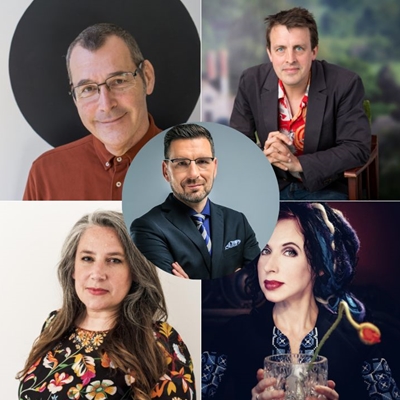
Event 59
Mariano Sigman is one of the world's leading neuroscientists, with more than 150 publications in the most prestigious scientific journals. He is also passionate about experimentation, and has worked with magicians, chefs, chess players, musicians, sportsmen and visual artists, bringing together neuroscience expertise and different aspects of human culture to apply them in different environments. He is the author of the bestseller The Secret Life of the Mind. In his lectures he explores what lessons can be drawn from mental functioning in areas such as decision-making, leadership, team management, personal development and creative skills, always making use of experiments and games to ensure a high level of audience participation.
Anne McElvoy has been policy editor, and head of audio at The Economist, and is now executive editor. The Economist Asks, her weekly Thursday interview show/podcast, has gathered hundreds of high-profile newsmakers from all around the world.
There will be a book-signing at the bookstand in front of IE University
Event with simultaneous translation from English to Spanish and vice versa
With the support of Penguin Random House Publishing Group and IE Foundation
Event 14
Salman Rushdie in conversation with Oleksandr Mykhed
Digital venue
Conversation around Salman Rushdie's newest book The Knife. On the morning of 12 August, 2022, Salman Rushdie was on stage at the Chautauqua Institution, preparing to give a lecture on the importance of keeping writers safe from harm, when a masked man rushed down the aisle towards him, wielding a knife. His first thought was: "So it’s you. Here you are". What followed was a horrific act of violence that shook the literary world and beyond. In his book The Knife, Rushdie relives the traumatic events of that day and its aftermath, as well as his journey toward physical recovery and the healing that was made possible by the love and support of his wife, Eliza, his family, his army of doctors and physical therapists, and his community of readers worldwide. The Knife is Rushdie at the peak of his powers, writing with urgency, gravity, and unflinching honesty. It is also a deeply moving reminder of literature’s capacity to make sense of the unthinkable, an intimate and life-affirming meditation on life, loss, love, art – and finding the strength to stand up again. Chaired by writer, art curator and member of PEN Ukraine Oleksandr Mykhed.
Salman Rushdie will join the event digitally.
Supported by the US Embassy in Ukraine
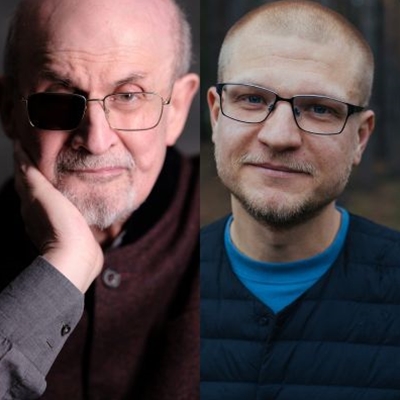
Event 60
Carme Riera in conversation with Angélica Tanarro
A novel life
La Alhóndiga. Escenario Gales / Llwyfan Cymru
The literary career of Carme Riera, writer, screenwriter, professor and academic at the RAE, is dotted with awards that underline her many contributions to the different genres through which her writing has traveled: from the short story to the essay, passing through the novel in its different forms, children's literature, autofiction... The Premio Nacional de Narrativa for El último azul, the Sant Jordi Prize for La mitad del alma, or the National Award for Spanish Letters in 2015 are just three examples of the many awards received. Her works have been translated into twenty languages. Some of her literary studies and anthologies have remained in the canon of the genre, such as Partidarios de la felicidad, about the poets of the Barcelona School. A bilingual writer in Catalan and Spanish, translator of her own work, Riera has applied the same passion and erudition she has applied to her entire career to a character who used this same recipe in her work as a mythical literary agent: Carmen Balcells, traficante de palabras is her latest work, a biography that brings two great women face to face.
Riera will talk to journalist and writer Angélica Tanarro.
Event in Spanish
Once the event has finished, authors will sign books in the booth at calle Real.
Organized together with Fundación Miguel Delibes and the support of Segovia City Council
Event 15
Myroslav Shkandrij and Terrell Jermaine Starr in conversation with Bohdana Romantsova
The Courage of Freedom: How We Reflect on history of slavery
Digital venue
The work of Myroslav Shkandrij, professor emeritus at the Department of German and Slavic Studies, University of Manitoba, and author of Revolutionary Ukraine, 1917-2017: Flashpoints in History and Contemporary Memory Wars, prompted Ukrainians to reflect on serfdom as a form of slavery that existed in Ukrainian territory. Terrell Jermaine Starr is an American journalist and activist who writes about Ukraine, foreign policy and race. Chaired by Bohdana Romantsova, editor at Tempora Publishing House.
Supported by the US Embassy in Ukraine
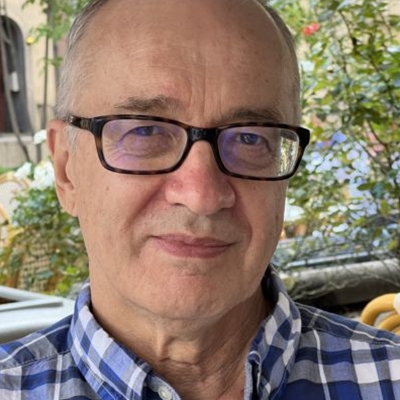
Explore All Genres
- 20 Questions
- Afrodescendencias
- South to South
- Architecture
- Art
- Arts & Culture
- Biography
- Children
- Culture
- Economics
- Education
- Equality
- Fiction
- Film
- Gender
- Globalisation
- History
- Human Rights
- Indigenous Cultures
- Journalism
- Literature
- Maths
- Memoir
- Music
- Nature & Environment
- Philosophy
- Photography
- Podcast
- Poetry
- Politics
- Science
- Technology
- Thinking
Partner for Latin America

Principal Sponsors
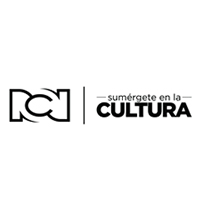


Government Partner

